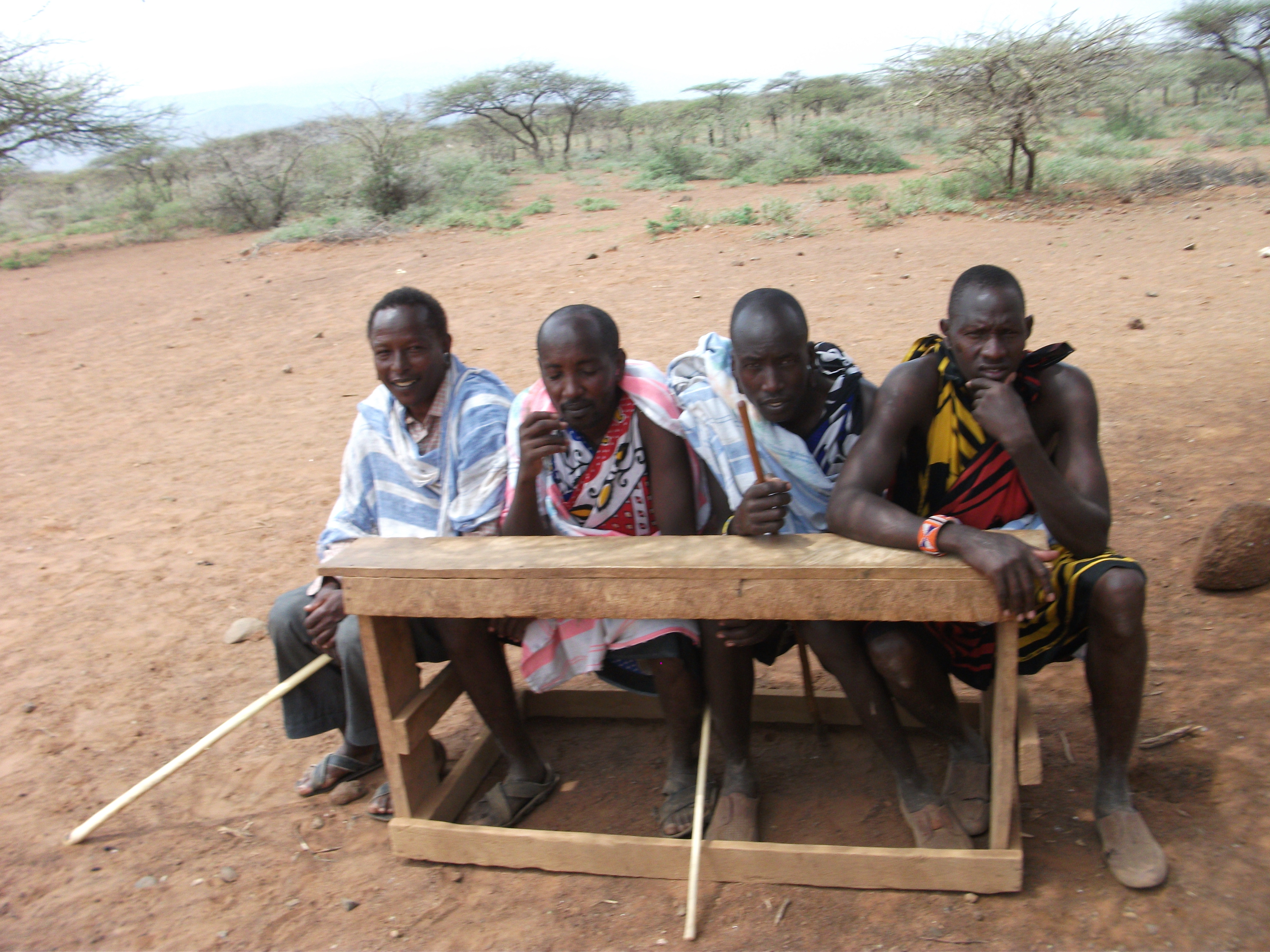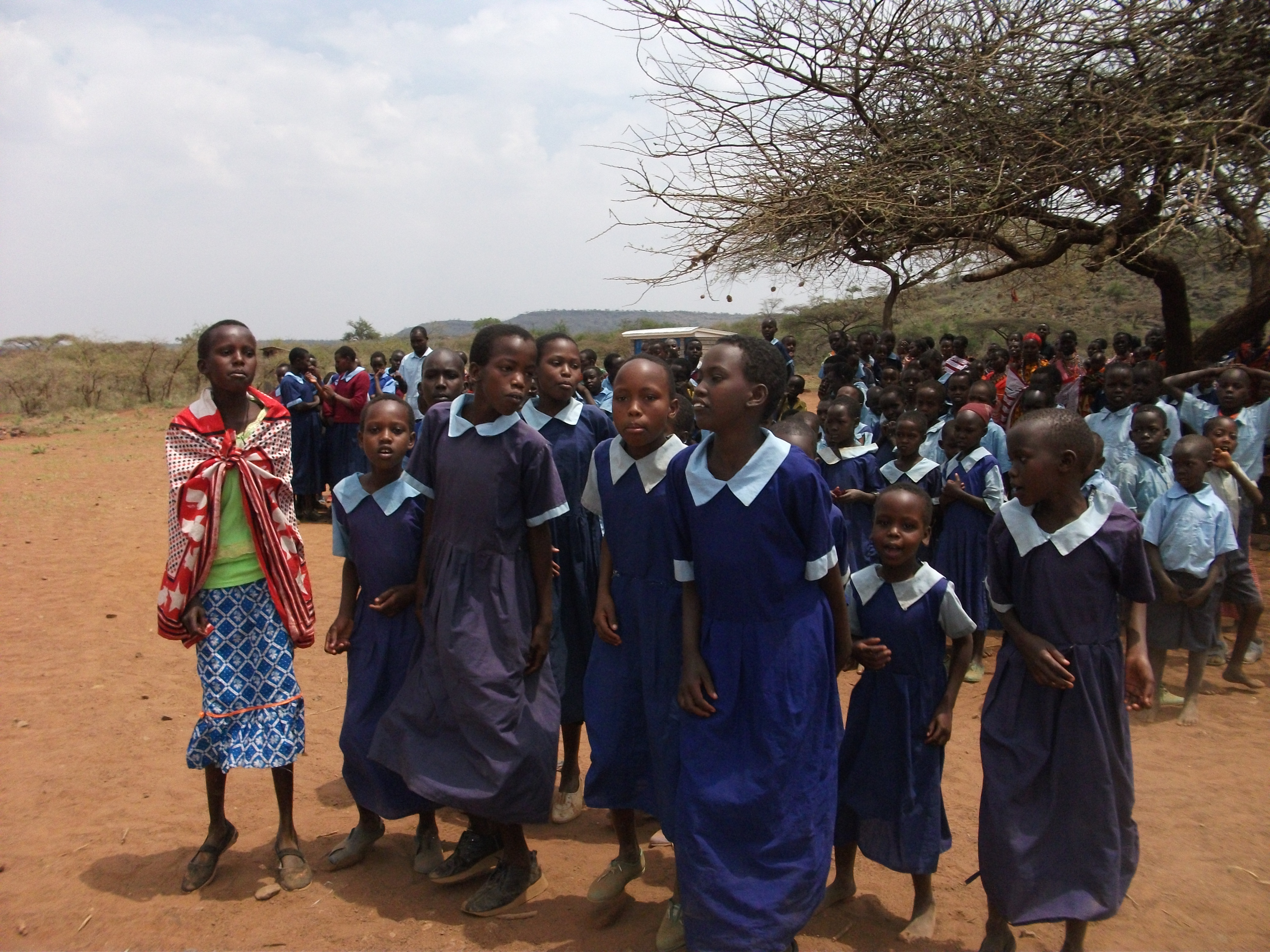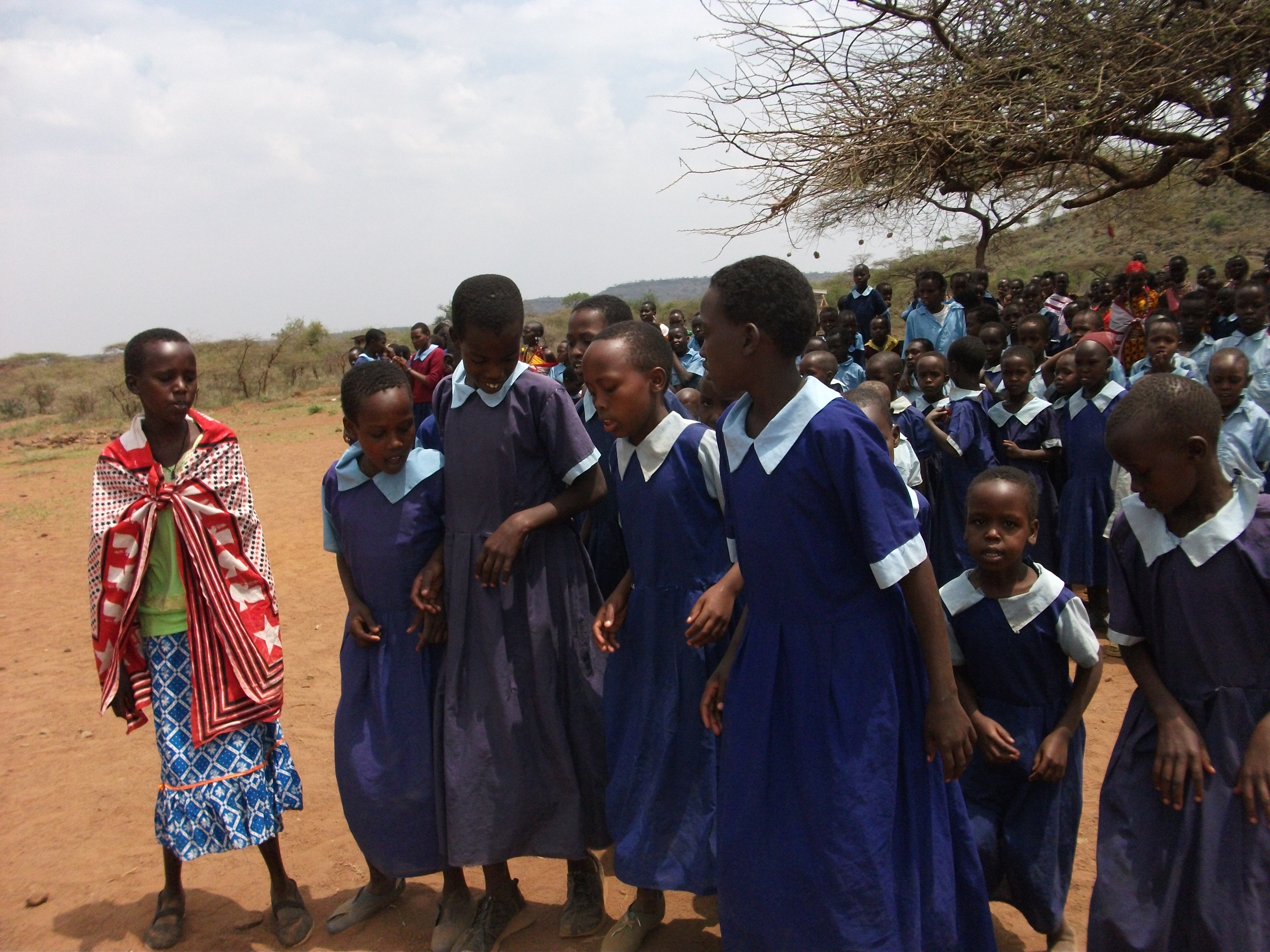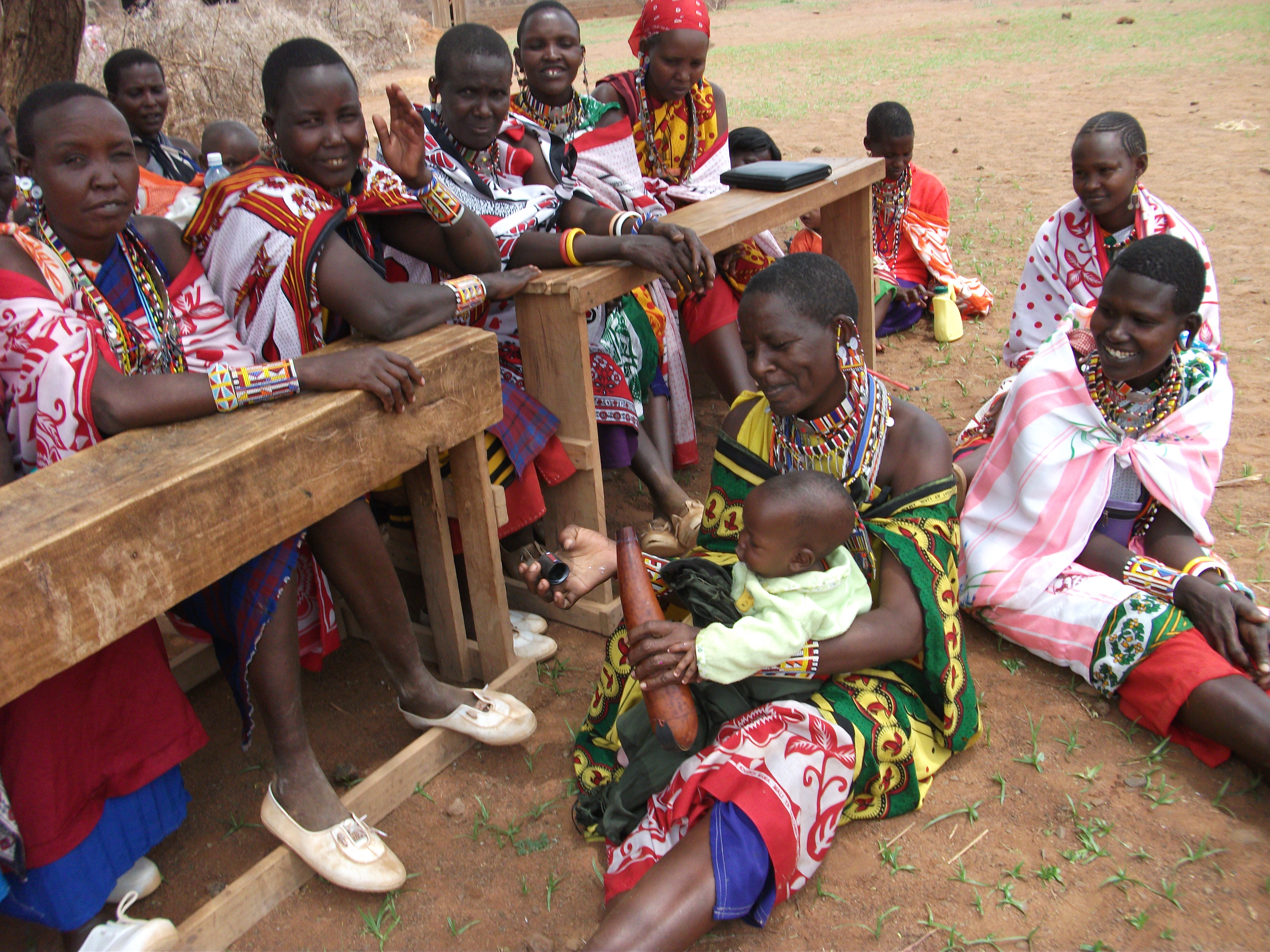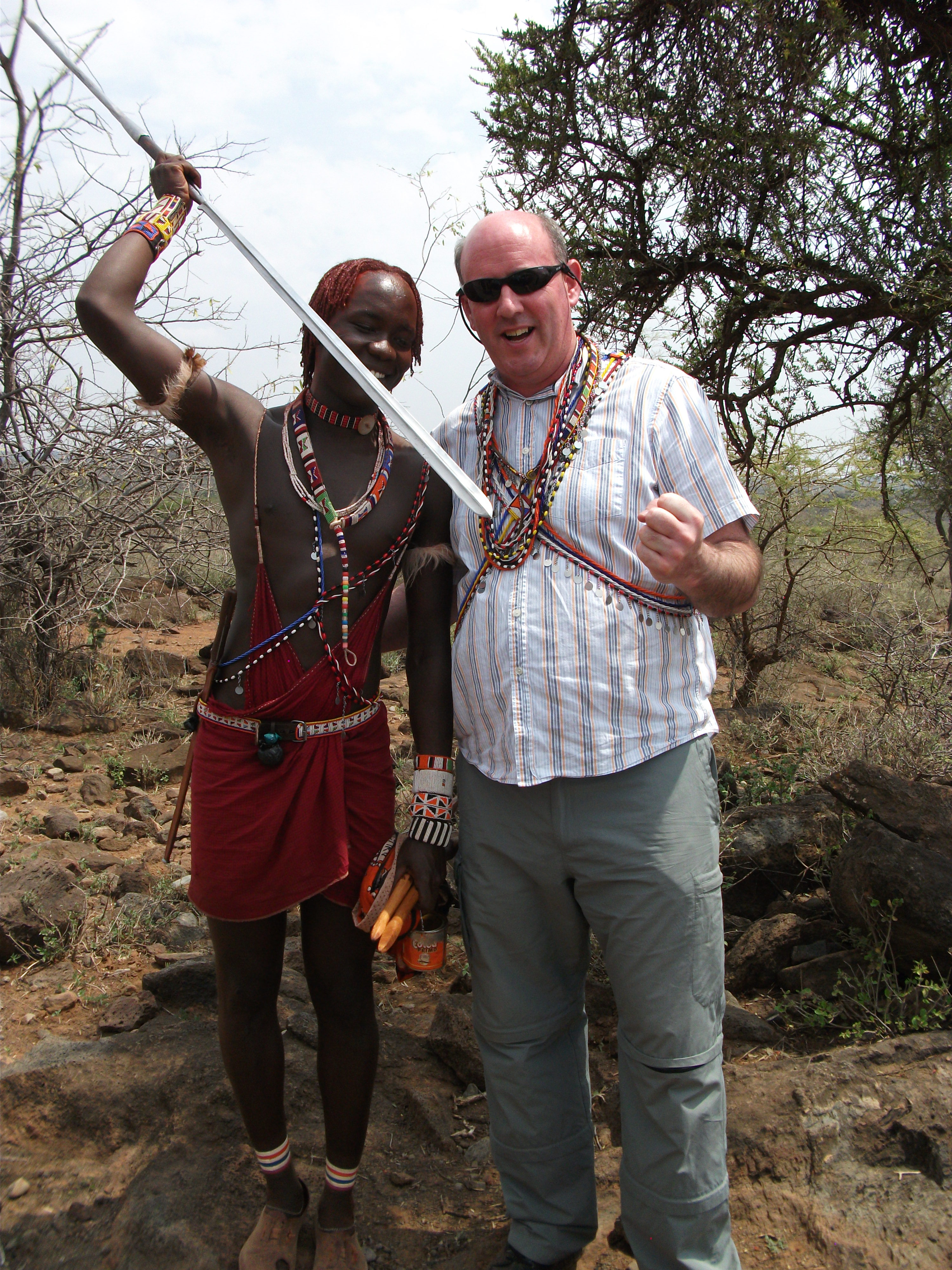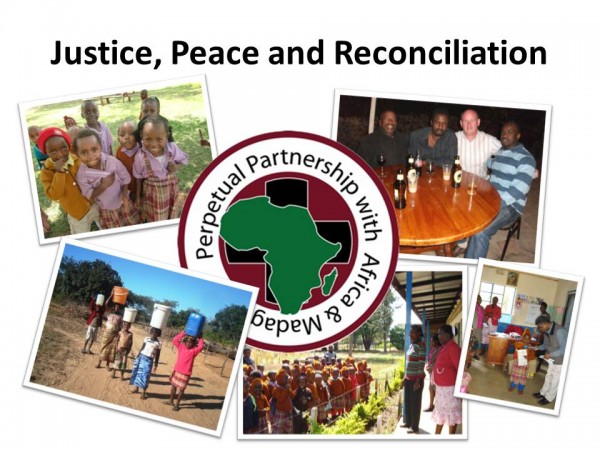Africa and Madagascar Context
Redemptorists believe that every believer is called to serve “the least of these”, to “hunger and thirst for justice”, to be a ”peacemaker” (Matthew 25:31-46; Matthew 5: 1-10). The Redemptorists work in a diverse set of challenging settings that includes nomadic pastoralists, squatter camp migrants, very remote and abandoned rural communities, city slums, and areas afflicted with conflict and tension and war. The Redemptorists of Africa and Madagascar are committed to implementing a coordinated Justice, Peace and Reconciliation Programme that protects human life, which promotes human dignity, and that defends those who are poor, and that seeks the common good.
Redemptorist Africa and Madagascar Programme 2011-2014
There are four principal component parts to the Redemptorist Justice, Peace and Reconciliation Programme with several sub-components:
- Peace and Reconciliation Programme
- Conflict Resolution
- Peace Building
- Interreligious Dialogue
- Specific Dialogue with Islam
- Restorative Practices Training
- Development Programme
- Education, Youth and Skills Training
- Water and Sanitation
- Food, Nutrition and Livelihood Security including micro-credits;
- Health and HIV/AIDS
- Urban and rural community development
- Ethics and Human Rights Programme
- Good governance and corruption
- Moral Theology and daily life
- Responses to Xenophobia
- Migrants rights
- Prisoners rights
- Gender
- Emergency Programme
- Relief support to political crisis, food shortage, natural disasters
The Redemptorist Approach
In Africa and Madagascar, the Redemptorists make a determined contribution to international development by:
- Operating from a holistic understanding of life;
- Understanding development as a multi-dimensional process;
- Responding to the needs at the Personal, Interpersonal and Structural/ Societal levels;
- Harnessing the full potential of religion and spirituality to reduce poverty and create opportunities;
- Learning from and being changed by the people that we are helping;
- Recognising the contribution of all members in a community as having equal value in pursuit of the common good;
- Optimising local participation and ownership in the development process by immersing ourselves in the lives and communities of the people;
- Acting as effective actors in achieving the Millennium Development Goals;
- Networking within the Redemptorist world-wide movement in favour of transforming the lives of the poorest people in Africa and Madagascar;
- Implementing development interventions through models that deliver value for money;
- Bridging the gap between the poorest people and development practitioners;
- Executing good exit strategies and a strategic approach to sustainable development;
Images from emergency support to Massai people:


